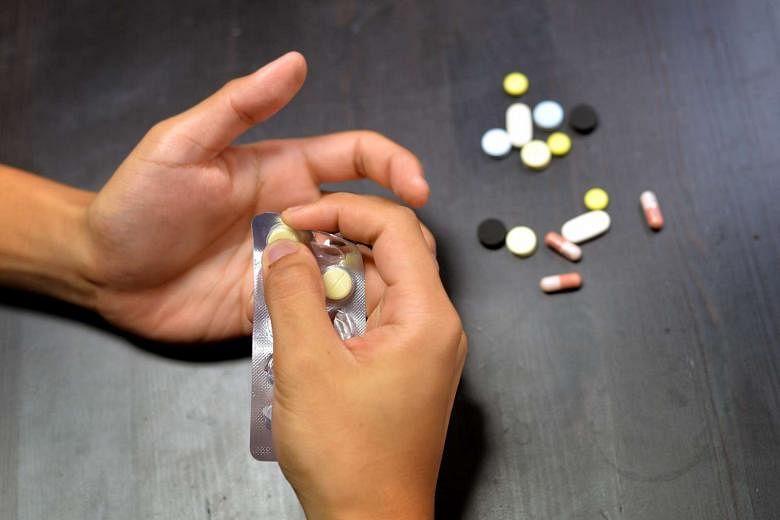SINGAPORE - The number of students and professionals caught for drug offences has risen yearly, prompting Home Affairs and Law Minister K. Shanmugam to warn of a new generation of drug abusers, with youth mistakenly thinking that drugs are cool, or that cannabis is non-addictive.
Responding to a motion tabled in Parliament on drug issues on Tuesday (April 4), he said more than 350 students have been caught for drug abuse over the past three years, while 70 professionals and managers were arrested for such offences last year.
In response to queries from The Straits Times, the Home Affairs Ministry said 151 Singaporeans and permanent residents studying in primary to tertiary public educational institutions were caught for drug offences last year, up from 124 in 2015 and 83 in 2014. The total was 358.
The number of professionals or managers caught rose from 49 in 2014, 50 in 2015, to 70 last year.
Mr Shanmugam added that drug offenders were also responsible for 12 per cent of 32,964 non-drug crimes committed in Singapore last year, which means one could be a victim of crime committed by a drug offender.
Meanwhile, about 83 per cent of the prison population have drug antecedents, he said.
With drug abusers getting younger and better educated and holding good jobs, unlike the previous generation of mostly from low-income households, Mr Shanmugam said the authorities will be reviewing its strategy and be more targeted in the fight against drugs.
To encourage youth to develop and practice a healthy lifestyle, he said the Central Narcotics Bureau (CNB) will launch the United Against Drugs Coalition later this month (April).
The coalition will see organisations such as civil society groups, interest groups and businesses coming together to combat drug abuse.
The Government is also reviewing its strategy to differentiate between those who supply drugs and those who consume them, employing data and an evidence-based approach, said Mr Shanmugam.
But education remains the first line of defence, said Mr Shanmugam.
Young people are also heavily influenced by their peers and environment, thus the need to step up efforts to grow anti-drug advocates, partnering the community to spread the anti-drug message, he said.


